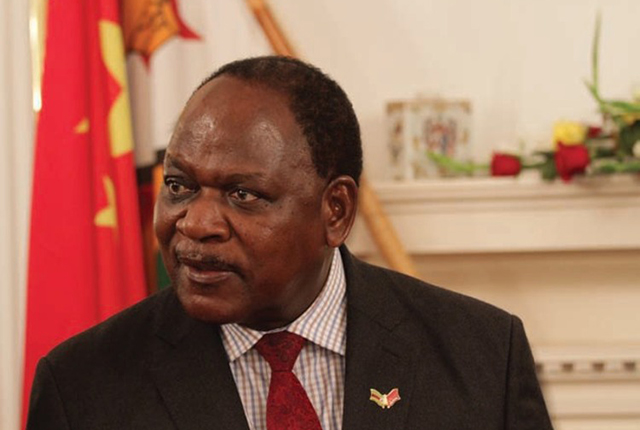Seven myths concerning marriage

Rumbidzai Tawonezvi-Moyo
ZWLA turns 25 years old this year and over ZWLA’s many years providing legal services to the public, we have come across some peculiar doctrines circulating within the society pertaining to family law which have no sound legal basis.
These myths and wrong information have led many people astray, resulting in them making decisions concerning their lives and livelihood which have proven to be detrimental to themselves and their families.
The list of myths is extensive of course; however we have come up with the most common ones that we have come across. This article seeks to clarify the common misconceptions.
- “What’s yours is mine and what’s mine is yours”
As romantic as this notion may sound, this is not the position of our law. In Zimbabwe our matrimonial property regime is “out of community of property and out of profit and loss.”
This means that any property purchased before and during the subsistence of the marriage belongs to the person in whose name the property is registered.
For example, if the parties purchase their matrimonial home and registered it in the name of the husband, in terms property law, that property is deemed to belong to the husband.
Likewise if the property is registered in both parties’ names, then the property is deemed to belong to both parties in equal shares.
For an in depth explanation by ZWLA of this matrimonial property regime, please refer to the article, “Right to property purchased during civil marriage” published in the Herald on the 19th of October 2016 at the following link http://www.herald.co.zw/right-to-property-purchased-during-civil-marriage/.
- Parties who have cohabited for a certain period of time are deemed to be married in terms of an Unregistered Customary Law Union
It is important to first highlight the fact that an unregistered customary law union is only recognised as a marriage in certain areas in our laws.
These areas are found but not limited to Maintenance law, Inheritance law, Pensions and Criminal law privileges.
For an in depth explanation by ZWLA of the rights afforded to parties in an unregistered customary law union, please refer to the article, “Rights of women on dissolution of unregistered marriages” published in the Herald on the 16th of September 2015 at the following link http://www.herald.co.zw/rights-of-women-on-dissolution-of-unregistered-marriages/.
The Law recognises marriages and unions in terms of the prescribed rites in which they are entered. If parties do not abide by the prescribed rites and rituals of that marriage or union, then naturally their relationship does not qualify under its’ precepts.
So for example, if you fail to obtain a valid marriage certificate from the Registrar of Births and Deaths, then you cannot be deemed to have entered into a civil marriage.
So In terms of our customary law in Zimbabwe, for an Unregistered Customary Law Union to be valid, the groom has to offer bride price (lobola/roora) to the family of the bride. In offering this bride price, a portion of rusambo should be offered to the family of the bride.
It is not necessary that the whole amount of rusambo be paid on the day of the union, however a portion that is significant enough in the eyes of the bride’s family should be offered.
Only once rusambo is offered, is the Bride deemed to be married and released by her family to live with her husband as man and wife.
In very many circumstances the groom may have only offered “Tsvakirai kuno” or damages for impregnating the bride towards the family of the bride.
Although the parties may go on to live together as man and wife thereafter, this is not considered as an Unregistered Customary Law Union.
The reason is that the groom has not offered any portion of rusambo towards the family of the Bride and has therefore not satisfied the prescribed rites and rituals of an Unregistered Customary Law Union.
What does this mean in terms of our law?
It means that any parties whereby the man has not offered a portion of rusambo to the family of the bride; are deemed to be co-habiting in the eyes of the Law.
Regardless of whether they have been living together for example for forty years and have five children and fifteen grandchildren, they will not be afforded the protection under those areas of law which recognise unregistered customary law unions.
- Where a marriage has dissolved due to adultery, the adulterous party forfeits their right to matrimonial property
Section 4 of the Matrimonial Causes Act Chapter5:13 requires us to state our grounds for divorce when filing for divorce. This however is only procedural and the Court does not place any blame on any one party for the dissolution of a marriage.
The Court therefore does not persecute or punish any party to a divorce for any contribution that they may have made towards the breakdown of the union.
As such, no party will be punished by the Court for any contribution that they may have made towards the breakdown of the marriage.
There is a presumption that matrimonial property is purchased through the joint and complimentary efforts of both parties to the marriage. In terms of section 7(2) read with section 7(4) of the Matrimonial Causes Act chapter 5:13 the Court will strive to ensure that an order operates fairly as between spouses and places the spouses in the position that they would have been had a normal marriage relationship continued.
As such, the Court will not make an order which deprives one party to a marriage a share of the matrimonial property solely because they have contributed towards the breakdown of the marriage due to adultery or any other ground.
- The party who institutes divorce proceedings is required to contribute spousal maintenance to his/her spouse
Many people seem to believe that it is an offence to file for divorce. This is a falsehood. The Court understands that many marriages may breakdown, and no one party is persecuted or punished for filing for divorce. As such the party who institutes divorce proceedings will not be required to contribute towards the maintenance of their spouse, solely based on the reason that they have filed for divorce.
For an in depth explanation by ZWLA of the requirements for spousal maintenance please refer to the article published in the Herald on Wednesday the 8th of March 2017 entitled “Can parties continue to support each other after divorce.” Which may be found at the link http://www.herald.co.zw/can-parties-continue-to-support-each-other-after-divorce/.
- Custody of the children is always awarded to the mother
It is important to first state that traditionally, custody of the minor children was generally speaking awarded to the mother.
This is largely due to the fact that in terms of section 5 of the Guardianship of minors Act where the parents of a minor child commence to live apart, the mother shall have sole custody of the minor child until an order as to custody is made.
Although this is the norm, it is not to say that the father may not be awarded custody of the minor children.
In terms of section 81(2) of the Constitution of Zimbabwe Act 20 of 2013, a child’s best interests are paramount in every matter concerning the child.
When we apply this section to the custody of minor children, it means that the custody of the minor child is determined in terms of what is in the best interests of the minor child. If it is in the best interests of the minor child to live with the mother instead of the father then the custody will be awarded to the mother.
Likewise if it is in the best interests of the minor child to live with the father and not the mother, then the custody of the minor child will be awarded to the father.
- Lobola proceedings must always precede a civil marriage
As Zimbabweans, Lobola proceedings are indeed an important aspect of our culture which should always precede a civil union.
It is a common perception that one has not been appropriately married if their husband has not offered a satisfactory bride price to his wife’s family. Many women approach ZWLA offices seeking legal recourse to force their partners to offer bride price to their families.
Likewise many parents approach ZWLA seeking legal recourse to force a man to pay bride price for their daughter who he has been cohabiting with.
The truth is that customary law is not binding on any one party. If a man or woman chooses not to abide by customary law, they cannot be forced to. In that vein if a man chooses not to pay bride price for his partner, he may not be forced to.
Parties may enter into a civil union without having gone through Lobola proceedings. This is not to denigrate customary law; however it is merely to give people the free will to abide by or not to abide by customary law.
- Spouse maintenance is compulsory
This point is closely related to point 4 of this article. There is a misconception amongst people whereby there is a sense of entitlement to spousal maintenance. This is not the case.
In other Court judgments, it was held that “The idea that marriage ought to provide the wife with a ‘bread ticket for life’ is on its way out”.
A party to a marriage needs to prove that they require and indeed deserve to be awarded spousal maintenance.
For an in depth explanation by ZWLA of the requirements for spousal maintenance please refer to the article published in the Herald on Wednesday the 8th of March 2017 entitled “Can parties continue to support each other after divorce.” Which may be found at the link http://www.herald.co.zw/can-parties-continue-to-support-each-other-after-divorce/.
We hope that this article has educated the reader in understanding the correct position of the law pertaining to these matters raised. We hope that it will allow you to put your affairs in order and make the right decisions pertaining to your lives and that of your loved ones. Happy Women’s month!
- For feedback questions and comments please feel free to email [email protected] or to phone our hotline number on 0782 900 900 or our toll free on 08080131








Comments